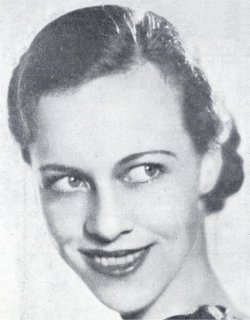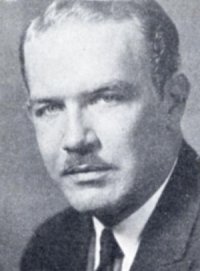Radio Articles
Ten Of Fifteen Announcers At Local Studios Were Raised In St. Louis
There was a time when boys thought it was “definitely sissy” to take expression lessons and learn to cultivate well-modulated tones of voice, but not so in this era! The radio has changed that factor until it provides a heretofore unheard of medium for clear spoken voices to make good, and that right in their own home towns.
Of the fifteen staff announcers at four radio stations, ten of them are men who went to school right here and have publics who knew them “when.” Announcers have gone out from St. Louis to become the leading announcers in stations all over the country.
It is a field to which men from other professions have come because they have that unusual quality in their voices which makes them seem real persons as they come over the air. They can make their voices sound alive and vibrant and sympathetic to the millions of local and national listeners.
At station KMOX, there are six on [regular] schedule and many of them join in other programs. Peter Grant, who is the senior announcer, is in reality Melvin Maginn, a graduate lawyer. He is the son of a music instructor at Washington University. Bob Holt is from St. Louis as is Garnett Marks and Paul Sullivan, the newest one, who was selected from a recent school of announcership training.
France Laux, the sports announcer at KMOX, is from Bristow, Oklahoma, and was voted the second most popular announcer in the country last year. Holland Engle found his way here from Fairmount, W. Virginia and has broadcast from more than 100 stations all over the United States.
At KWK, Bob Thomas is the chief announcer, having lived his whole life in St. Louis and spent all of his radio life at the station. John Harrington is from Kirkwood and was formerly a draftsman. Sterling Harkins, although he came here from Mobile radio work, is a St. Louis boy. Del King of “On the Bookshelf” fame is from Kansas City.
A veteran radio worker is Robert L. Coe at KSD who has been with radio stations in St. Louis even since he was a small boy. He has and is serving in almost all capacities at the station. Ray Gutting, the market announcer, came from a small town in Illinois but has been here so long that he is practically a native St. Louisan.
WIL has gone in more foreign fields for its personnel with Franklyn MacCormack, program director, from Los Angeles. Neil Norman, commercial announcer, was born in Dayton, Ohio and came here from Chicago. Denver is the scene of Billy Lang’s initial radio work and where he spent his childhood.
They come from the stage, from professions and from formerly plain work-a-day industrial lives – these men whose voices come out of the air each day to make some particularly interesting moment. They chat unaffectedly and interestingly with men, women and children upon subjects which will be of interest to them. They have huge followings of friends whom they have never seen but who are their most precious possessions nonetheless. It is those friends and their letters that give them the spirit and inspiration to talk hours on end into an unresponsive microphone.
(Originally published in Radio and Entertainment 3/26/1932).

